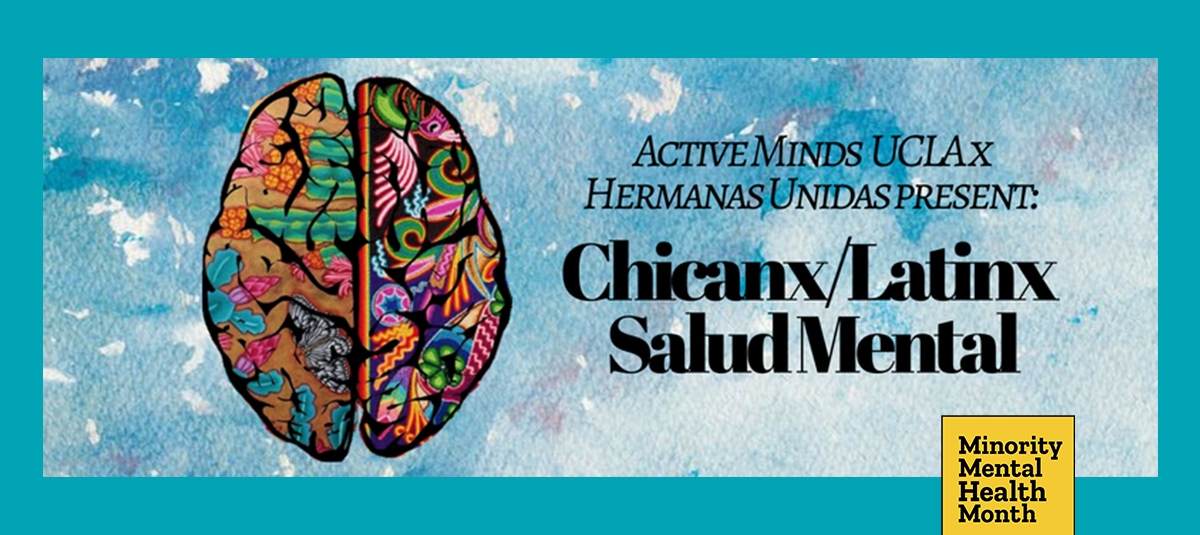Content Warning: This piece contains mentions of suicide statistics.
When mental health is not a conversation within your community – you start a conversation. This is especially important amongst diverse, multicultural communities where mental health is often ignored or stigmatized.
As the former executive director on the Active Minds UCLA board and former campus ambassador for the Active Minds for Every Mind California Cohort Project, a project aimed to enhance mental health messaging and culturally responsive programming amongst students from diverse communities, I was incredibly passionate about doing work on our campus and on a national scale that shed light on the intersectionalities between culture and mental health, in particular Latinx and Chicanx communities. My experience as a Latina, first-generation college student who struggled with mental illness motivated me to give back to my community.
Active Minds UCLA’s Culture in Mind Initiative
Mental health is not a topic of discussion amongst Latinx/Chicanx communities. It was not until college that I learned about mental health and reflected on the experiences of Latinx/Chicanx people as a whole. It was shocking to learn that Latina youth have the highest rate of suicide attempts and to realize how toxic masculinity norms perpetuate the normalcy of alcoholism amongst Latinx/Chicanx men. Furthermore, it was frustrating to witness the trauma and anxiety plaguing undocumented members within the community as a result of a tense political climate. It calls for an increase in culturally competent mental health treatment and the need to foster a conversation amongst Latinx/Chicanx folx about mental wellness. These observations led to the beginning of Active Minds UCLA’s Culture in Mind initiative this previous academic year. Our initiative brought forth a greater inside look into the ways culture and mental health intersect amongst a myriad of multicultural communities. What we found was a demand and need for more culturally appropriate and responsive events on our campus as well as the emergence of strong, resilient mental health advocates, many who are members of minority groups. We were incredibly inspired by our fellow Bruins and their willingness to share their mental health stories and seeked to bring more events that would effectively address mental health.
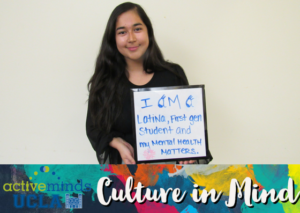
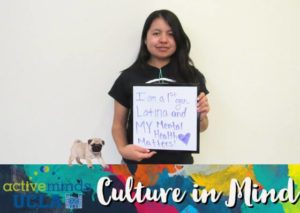
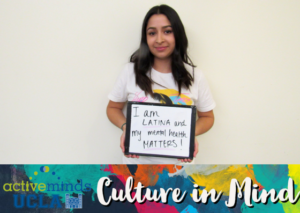
Chicanx/Latinx Salud Mental Event
During Mental Health Awareness Month in May, and with support from Each Mind Matters, CalMHSA and Active Minds Inc., we were able to collaborate and develop an event at UCLA with the intent to bring greater awareness to the particular mental health experiences and challenges within the Chicanx/Latinx communities. The event featured a student panel, an educational presentation led by a CAPS clinician and an art activity inspired by the loteria card game. Throughout the entirety of the event, we also provided attendees with mental health resources from various on campus resources, outside agencies and organizations such as Sanamente. To conclude the event, we administered surveys asking people how they felt about the content presented and if they gained more information and resources about mental health by the end. We designed the event to provide an educative, interactive and collaborative experience for individuals paired with both professional and student perspectives. A supplemental Spanish component was also available as both the CAPS clinician and fellow Active Minds UCLA directors were fluent in Spanish. Essentially, the event was created for Latinx/Chicanx people by Latinx/Chicanx people.
From a Student’s and Clinician’s Perspective
As an Active Minds chapter, we are very dedicated to providing students with a safe and welcoming space to talk about mental health. Because of the theme of our event, we wanted to make sure we heard the stories of Latinx/Chicanx students who were passionate about promoting mental wellness in our communities. Thus, we assembled a panel of resilient and inspiring students from two Latinx based organizations at UCLA, Hermanas Unidas and Hermanos Unidos. We remain continuously inspired by these groups’ efforts and ability to foster a welcoming space for Latinx/Chicanx folx on our campus. Through our collaboration, we were able to reach more members of our community and more effectively spread the message of mental wellness.
During the panel, students discussed a myriad of topics regarding mental health in their communities. Students not only bravely shared their struggles with their own mental health but as well as bigger problems that have impacted the community as a whole. For example, one student mentioned the immense mental health stigma experienced by men who suffer from mental illness. Latinx/Chicanx men are often pressured to adhere to machismo, or appear tough, and thus feel discouraged from expressing their mental health struggles for fear it might be perceived as a sign of weakness. Another topic raised by a student was how the Spanish language can further contribute to the mental health stigma. Individuals who are mentally ill may sometimes be referred to as loco/a, or crazy, which also discourages people from seeking help.
Furthermore, many panelists shared that they were first-generation college students and referred to the increased pressure they felt to be successful in an already stressful environment. They expressed their struggle to persevere through college especially when they keep their parents’ sacrifices in mind. Throughout the panel, our peers’ voiced the importance of educating members of the community about mental health, using less stigmatizing language, considering unique challenges Latinx/Chicanx students may face in college institutions and the ever-growing need for accessible, culturally-competent mental health resources.
Recognizing the importance of minority representation amongst mental health professionals, we invited a Latina CAPS clinician to provide a professional and clinical perspective on mental health. Throughout her presentation, she strived to incorporate Latinx/Chicanx culture elements and practices and explain how they were incorporated in our community’s understanding of mental health and treatment. This led her to bring up topics such as the usage of VapoRub, the role of the church and priests, the normalcy of alcoholism amongst men and much more. She acknowledged how our remedies to ailments can be unique in our culture as many of us were taught to perceive sobadores as doctors or use VapoRub to help cope with pain, either physical or psychological. An important aspect of Latinx/Chicanx culture is religion; religion has played a major role in several of our families in different shapes and forms. For some of our families, the priest can be the equivalent to a therapist in our neighborhoods. Instead of prescribing psychotropic medications like Prozac or Lexapro, priests prescribe prayers. She also acknowledged how reliance on a priest to aid in times of distress could also be due to the inaccessibility of culturally competent mental health resources offered to Latinx/Chicanx folx. SanaMente, the Spanish equivalent of Each Mind Matters, was highlighted as a way to help address the lack of mental health resources available in Spanish. We offered printed Sanamente fotonovelas and spanish brochures detailing mental health resources and tips to better mental wellness. It is clear that language plays a major role in the Latinx/Chicanx community as it influences the accessibility and quality associated with mental health treatment.
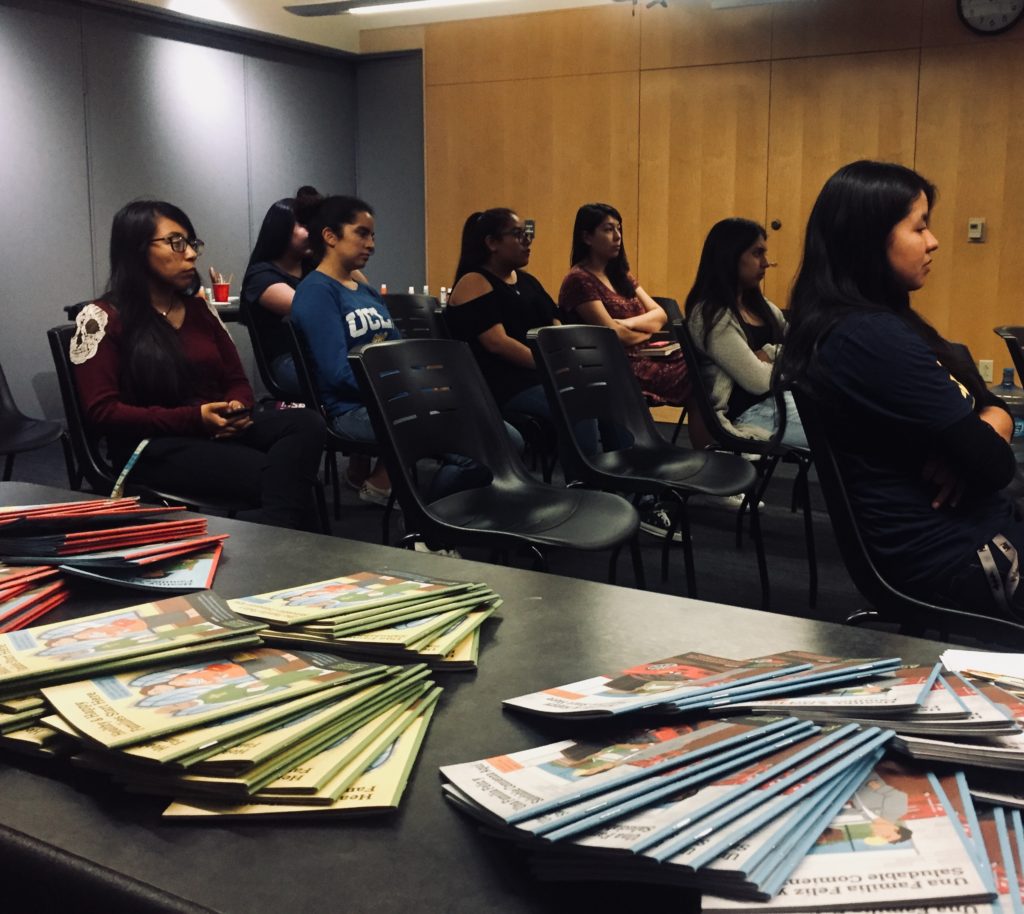
Loteria Cards
Following the student panel and clinician’s presentation, we facilitated an interactive art activity inspired by the popular and well-known Loteria card game. In our communities, this visually-appealing and fun game has brought people together. We asked attendees to draw, paint or create some form of visual representation of what they perceive mental health to be or look like. We used a simple template with the words “Salud Mental” printed on it and the results were fascinating. Mental health does not look the same way for everyone. For some, mental health looked like being at peace near the beach and for others, it was practicing mindfulness or playing a musical instrument. Through this activity, members of the Latinx/Chicanx community could see that mental health can look differently for every person and that there are a plethora of self-care practices to consider if one practice is not effective.
To supplement the activity, we also designed our own mental health themed Loteria cards to convey what mental health and related topics may look like. We designed the cards in a way that was lighthearted and relevant to both the UCLA community and Latinx/Chicanx folx. On the cards, we translated words such as depression, anxiety, faith and suicide prevention into Spanish for the purpose of breaking the language barrier. We acknowledge that for many individuals it can be a challenge to communicate with a Spanish-speaking family member or friend about a topic such as mental health when one does not know the translation of the word. The purpose of teaching the language was to show individuals the proper Spanish terminology for mental health related words so they may remedy the burden of language barriers.
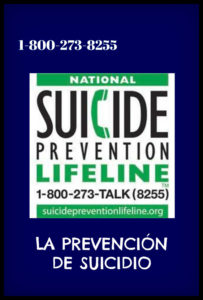
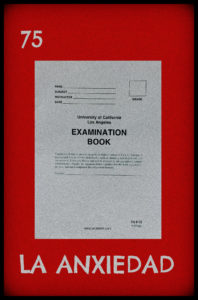
In other cards, we sought to provide a non-Western alternative or perspective to topics such as medication which may look like VapoRub in Chicanx/Latinx communities and like the antidepressant Prozac in the United States. Without dismissing either treatment, we instead aimed to break down the cultural barrier by considering alternative forms of medicine. Furthermore we also recognized that religion, in particular Catholicism, plays a huge role in the lives of people within this community for treatment, support and a source of hope. Therefore, we found it necessary to include cards depicting faith in the group; we also tried incorporating more well-known cultural phenomenons in the faith card with a depiction of Selena who brought great Latinx/Chicanx representation into mass media. We understand how crucial representation is and thus wanted to express this idea by incorporating her into our loteria card collection.
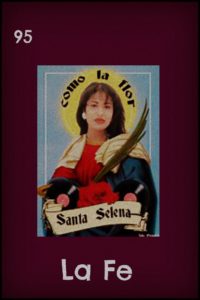

Lastly, our role as Active Minds directors is always to find better ways to eradicate the mental health stigma on our campuses and communities. Throughout the process of designing these cards, we always tried to find a way to express a concept in the most non-stigmatizing way possible. We found that showing where our campus’ CAPS center was through a card was a great way to show Latinx/Chicanx folx where they could receive mental health treatment as students. Furthermore, we included the National Suicide Prevention Hotline number in the suicide prevention card as a way of spreading awareness on important mental health resources. When trying to explain depression or anxiety, we included more humorous yet relevant images of blue test books and memes to cater to the demographics.
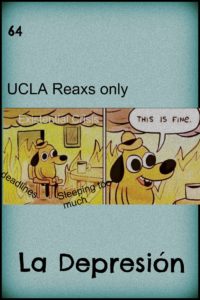
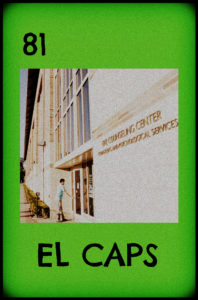
In the process of designing these cards and developing the event, we found that mental health is an intersectional experience. As students, mental health advocates, campus leaders, readers, professionals, and so on – we need to take more consideration of the various intersectional factors that can influence an individual’s mental health. We must all consider this not only during Minority Mental Health Month, but throughout all of our mental health advocacy work and daily interactions with people.


